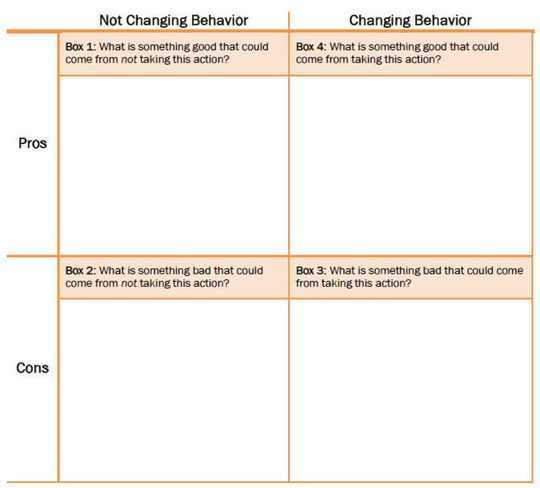It’s a new year and many people are in the mood for making a fresh start. And that often means giving something up (cigarettes, alcohol, junk food). Unfortunately, the odds of sticking with new year resolutions are not good. Come February, 80% of people will have given up giving up. So what can we learn from the 20% who make it?
Some might just be lucky, but most – whether they realise it or not – will be using techniques based on scientific evidence. While you might feel you have little in common with people who overcome drug dependency, you can benefit from the techniques that have been shown to help this group.
The two Ps
Perseverance underpins most stories of successful change, and it can take anywhere from six to 30 attempts to quit for those dependent on drugs to become abstinent. While these numbers might seem off putting, it’s important to be realistic about the need to persevere. Incremental change is known to be superior to overly ambitious targets – appealing as they might be.
This leads to the second “p” - planning. Conventional wisdom suggests that planning improves the chances of success, but there is evidence that unplanned attempts to quit smoking can be just as successful. Good news for anyone embarking on an impromptu attempt to change.
So although spontaneous attempts can be successful for smokers, picking the right day to start changing other habits is likely to play a part. We know that motivation and energy fluctuate, so think about when you will have maximum levels of both. Starting well gives the initial encouragement needed to get to day two.
Learn from lapsing
Having a lapse shouldn’t be viewed as a failure or used as an excuse to give up. It can be tempting to view change in a binary way - success or failure. Instead, view a lapse as an opportunity to gain insight, reflecting as honestly as possible on why the lapse happened and how this could be avoided or counteracted on the next attempt at change. Research has repeatedly shown us that these processes are crucial for changing ingrained habits, so much so that in the world of addiction, treatment is often referred to as “relapse prevention”, to acknowledge that treatment is as much about preventing the negative as it is accentuating the positive.
High levels of self-efficacy (a belief and confidence in personal ability) when trying to change behaviour predict ultimate success. Factors that increase self-efficacy include self-talk (“I can do this”), previous success at changing other behaviour or habits, and affirmations from others.
Cultural differences can influence how comfortable and skilled an affirmation is. The way Americans routinely affirm each other is in contrast to those in the UK who tend to be suspicious of affirmations.
Believing change is possible can be undermined by “anticipatory anxiety” – when a person expects and fears withdrawal symptoms when changing a habit, such as smoking. The anticipated discomfort is usually greater than the actual experience but can paralyse any attempt to test reality. Rather than focusing on what you are losing by giving up smoking or alcohol, think of what you will gain (more money, better sleep). A useful exercise to help assess personal benefits is the decision balance sheet.
 Decision balance sheet. Agency for healthcare research and quality
Decision balance sheet. Agency for healthcare research and quality
Tell someone what you plan to do, you won’t want to let them or yourself down. Weight Watchers employ this type of social contract in some ways to encourage but also as a deterrent to relapse. Shame and guilt are powerful emotions that most people will try to avoid.
So when it comes to adopting a scientific approach to change, the evidence provides some helpful tips. Be prepared for several change attempts, don’t be too ambitious, don’t keep your change a secret and allow yourself to be complimented and encouraged.
Finally, today might be the right day to start. If you’ve only just decided, with motivation and energy on your side, your chances of ditching that bad habit are just as good as those who’ve spent weeks preparing. Making a change is relatively easy for most of us, maintaining that change is evidently a lot tougher. So while some might be lucky enough to make a change and stick to it, most of us will have to keep trying, the science suggests we’ll get there in the end.![]()
About The Author
Ian Hamilton, Associate Professor, Addiction and Mental Health, University of York and Sally Marlow, Addictions Researcher, King's College London
This article is republished from The Conversation under a Creative Commons license. Read the original article.

Related Books:
Atomic Habits: An Easy & Proven Way to Build Good Habits & Break Bad Ones
by James Clear
Atomic Habits provides practical advice for developing good habits and breaking bad ones, based on scientific research on behavior change.
Click for more info or to order
The Four Tendencies: The Indispensable Personality Profiles That Reveal How to Make Your Life Better (and Other People's Lives Better, Too)
by Gretchen Rubin
The Four Tendencies identifies four personality types and explains how understanding your own tendencies can help you improve your relationships, work habits, and overall happiness.
Click for more info or to order
Think Again: The Power of Knowing What You Don't Know
by Adam Grant
Think Again explores how people can change their minds and attitudes, and offers strategies for improving critical thinking and decision making.
Click for more info or to order
The Body Keeps the Score: Brain, Mind, and Body in the Healing of Trauma
by Bessel van der Kolk
The Body Keeps the Score discusses the connection between trauma and physical health, and offers insights into how trauma can be treated and healed.
Click for more info or to order
The Psychology of Money: Timeless lessons on wealth, greed, and happiness
by Morgan Housel
The Psychology of Money examines the ways in which our attitudes and behaviors around money can shape our financial success and overall well-being.






















